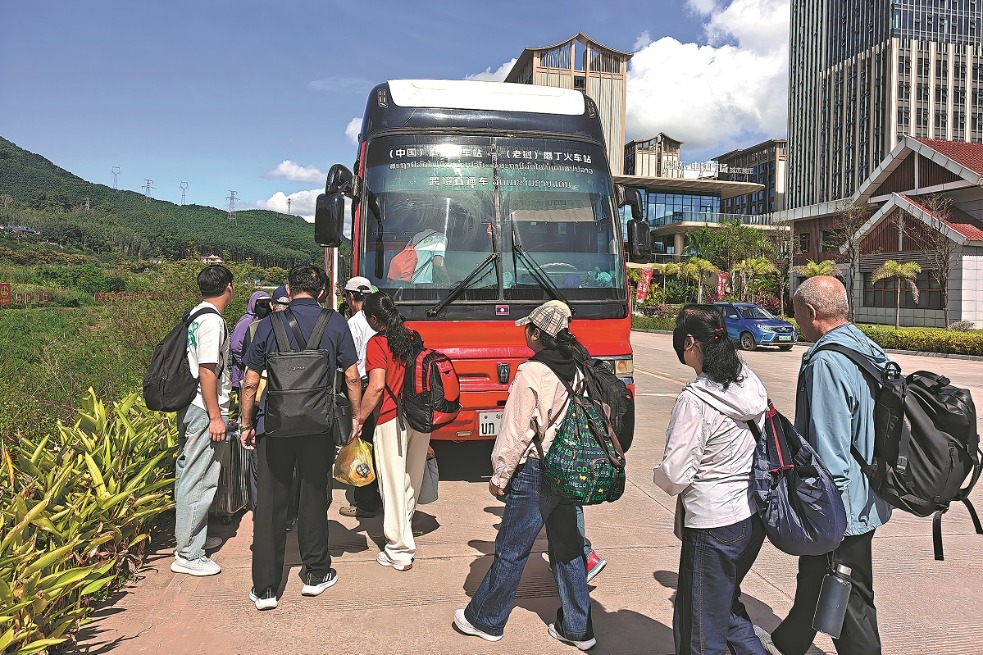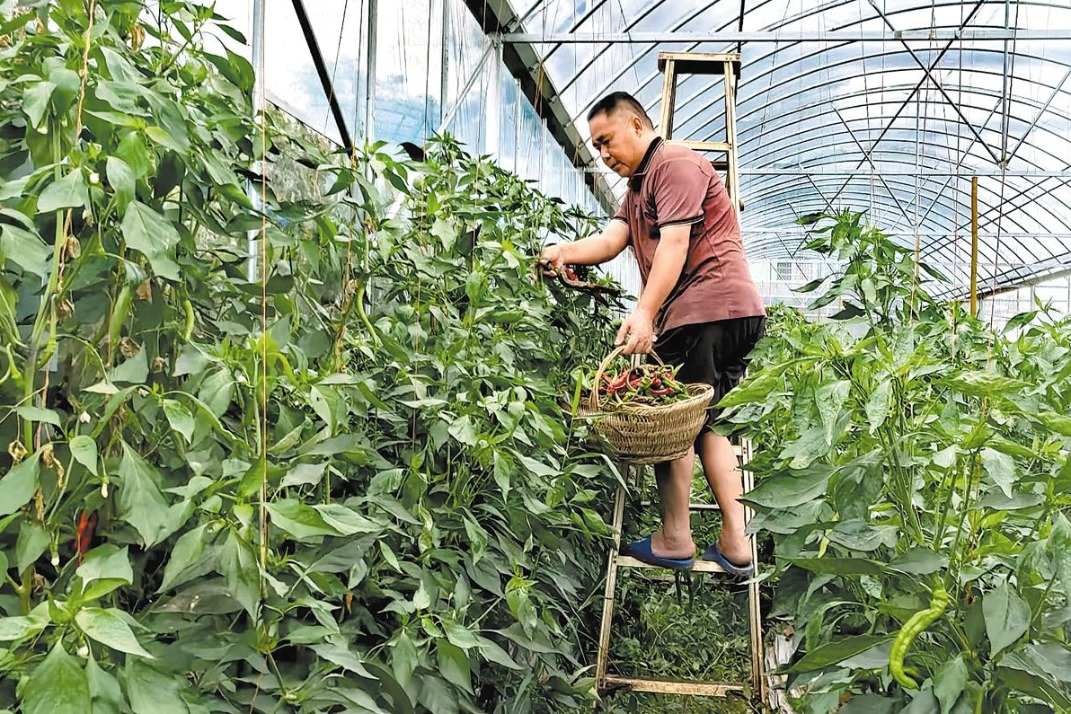He said cheese

|
|
Dutchman helps produce gouda from milk which was once being dumped on the streets in rural Shanxi
As far as foreigners living in far-flung areas go, Marc de Ruiter really is the big cheese. The 43-year-old Dutchman has spent 10 of his 13 years in China in rural Shanxi province's Yangqu county, where he works with local farmers, making the perhaps the only gouda produced in the country.
He came up with the idea for producing organic cheese in the rural area when he watched farmers dumping their milk on the streets, as the market was saturated in dairy in 2003. De Ruiter, who had come to the county three years earlier to assist with sustainable development projects, was truly disheartened to see these farmers literally pouring their livelihoods down the drain. So he started Yellow Valley Farmhouse.
"I want to prove that one can, from the start, run a company that aims to be natural and artisanal, and have a major social impact in the community where it is located," he says.
"It is my view that if we share some of what we gain with those less fortunate, we will have less poverty, fewer social problems and fewer conflicts."
The impact of his way of doing business has made him a major figure in the tiny community - so small, that one can bike across town in five minutes. And he appreciates the local people and factory workers as much as they appreciate him, he says.
"I enjoy the small talk and the kind people we are privileged to be working with. I have fun with the cheese staff and have built a lot of loyalty because of our way of working," he says.
The fair trade advocate hired more than a dozen factory workers to process the cheese, providing many job benefits scarcely found in rural China - medical insurance, pensions, unemployment and housing allowances. Workers are also guaranteed salaries, even if they are sent home because the factory is operating under capacity.
De Ruiter's company also deals with dozens of milk providers, whom it pays at least 0.4 yuan more than market price per kilogram of milk and agrees to always buy above cost, ensuring farmers' profits no matter what happens to milk's market price.
However, while his company's contributions to the local farmers have made him an important part of the community, he has come to realize after a decade that he will, in some ways, always be a foreigner.
"The town is small and many farmers from distant villages come to buy things, so they have never seen a real foreigner. So the kids often call, 'hello' or 'laowai' (foreigner)," he says.
"I have mixed feelings about it. In a way, I feel that I belong in this town. It is my home. It is my place. But the fact that people keep calling me laowai on the streets - they do not know me personally - makes me realize that because of my white skin I will never blend in and be part of them in some ways. This is sometimes frustrating."
But he says he has found a way to deal with this "irritating" phenomenon. "I've learned that if I talk back to the kids in Chinese, they laugh and have fun. They suddenly realize I am a person and not a monkey that ignores them. It breaks the ice and we can chat briefly, which makes me happy."
De Ruiter says he overcame his culture shock within his first eight months in China, when he was in Tianjin. He spent his first three years in the country as a language student in the coastal municipality.
"But after that (shock), I have not looked back again and have never had a moment of homesickness. I think it is a mindset, a decision made. We live here. We make this our home as a family."
Now, his only big complaint about where he lives is that there's not enough heating during the long winters. While he speaks fluent Mandarin, he has picked up only a few words of the local dialect, he says.
"I tend to not study it as I do not want to mix up my standard Chinese with local words. That is not good when I am in Beijing or Shanghai."
The Dutchman says he has been happy to host friends and family in the county, because it offers them a chance to see the country's rural realities. "Visiting friends say, 'Wow, this is the real China!' They have only seen the big cities like Beijing and Shanghai and the tourist sites," de Ruiter says.
"After visiting us and the countryside, they see that this represents the majority of the people in China."
De Ruiter says he and his family - his Dutch wife and their two teenaged daughters, who attend an international school in the nearby provincial capital, Taiyuan - have no desire to live in a bigger metropolis.
"I have bought an apartment here which we call home. Our kids grew up here, and they will be leaving us soon, but when we get together as a family, we want to have them be where they grew up - the place they call home."
He knows that his time in Yangqu county has transformed him but is unaware of to what degree, he says.
"It has shaped my thinking, my character and the way I go about things. However, do I realize it now, and can I see in which areas?" de Ruiter says.
"A lot of my Chinese friends say, 'You have become very Chinese'. Well, in some ways, I am Chinese, but in many others, I am still the Dutch guy that I always have been."
But he says he recently experienced a realization while taking a morning jog in the park.
"I realized that we are living in a community, unlike people in many big cities of China. Many faces are familiar, many greet me and we are part of this community, although those that visit the town will always view me as a foreigner," he says.
"Having a sense of community is giving us a sense of belonging. As we walk or run around, we chat and stop to talk with people we know. I guess that might not happen that often in the bigger cities like Beijing."
Today's Top News
- Inclusivity critical for AI governance
- Massive response to latest bonds issue
- Control of precursor chemical exports tightened
- Xi greets Ouattara on reelection as Cote d'Ivoire president
- CIIE displays innovation, global confidence in China
- Nation set to sharpen focus on key sectors































